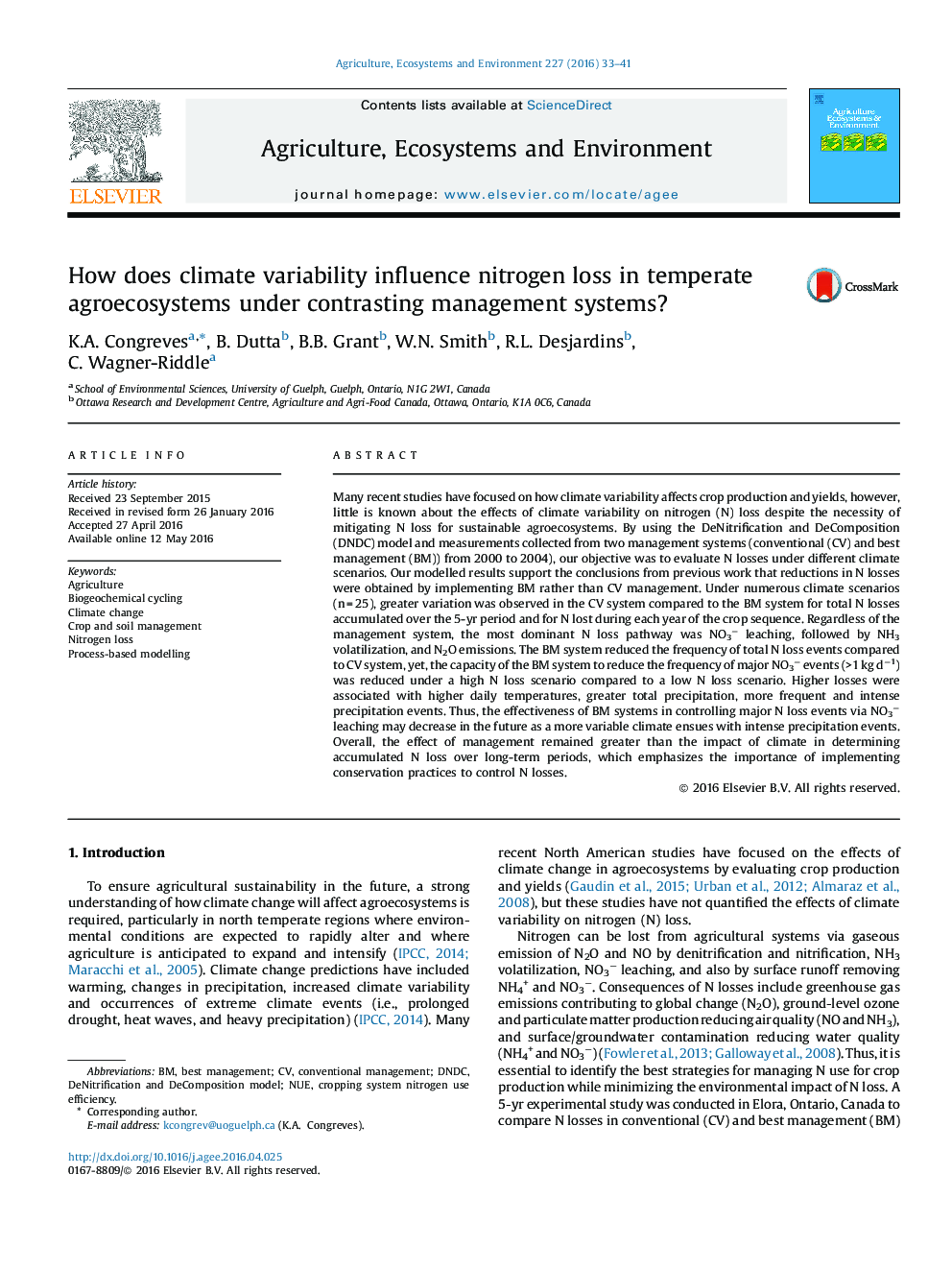| کد مقاله | کد نشریه | سال انتشار | مقاله انگلیسی | نسخه تمام متن |
|---|---|---|---|---|
| 2413524 | 1552025 | 2016 | 9 صفحه PDF | دانلود رایگان |
• Effects of climate variability on agricultural N loss are modelled for 5-yr periods.
• Two systems were considered: conventional (CV) and best management (BM).
• Climate variability had a greater influence on N loss from CV than BM systems.
• Adopting BM practices should improve agroecosystem resiliency for mitigating N loss.
Many recent studies have focused on how climate variability affects crop production and yields, however, little is known about the effects of climate variability on nitrogen (N) loss despite the necessity of mitigating N loss for sustainable agroecosystems. By using the DeNitrification and DeComposition (DNDC) model and measurements collected from two management systems (conventional (CV) and best management (BM)) from 2000 to 2004), our objective was to evaluate N losses under different climate scenarios. Our modelled results support the conclusions from previous work that reductions in N losses were obtained by implementing BM rather than CV management. Under numerous climate scenarios (n = 25), greater variation was observed in the CV system compared to the BM system for total N losses accumulated over the 5-yr period and for N lost during each year of the crop sequence. Regardless of the management system, the most dominant N loss pathway was NO3− leaching, followed by NH3 volatilization, and N2O emissions. The BM system reduced the frequency of total N loss events compared to CV system, yet, the capacity of the BM system to reduce the frequency of major NO3− events (>1 kg d−1) was reduced under a high N loss scenario compared to a low N loss scenario. Higher losses were associated with higher daily temperatures, greater total precipitation, more frequent and intense precipitation events. Thus, the effectiveness of BM systems in controlling major N loss events via NO3− leaching may decrease in the future as a more variable climate ensues with intense precipitation events. Overall, the effect of management remained greater than the impact of climate in determining accumulated N loss over long-term periods, which emphasizes the importance of implementing conservation practices to control N losses.
Journal: Agriculture, Ecosystems & Environment - Volume 227, 1 July 2016, Pages 33–41
